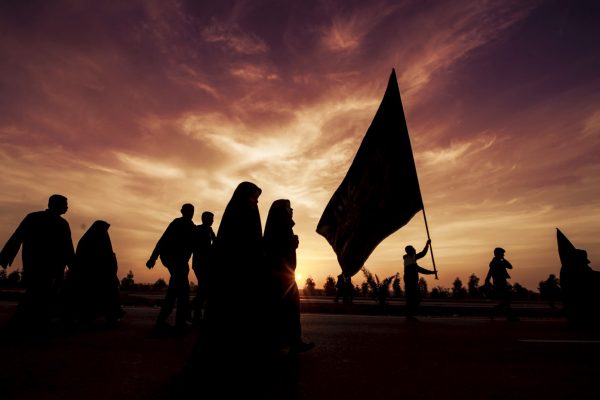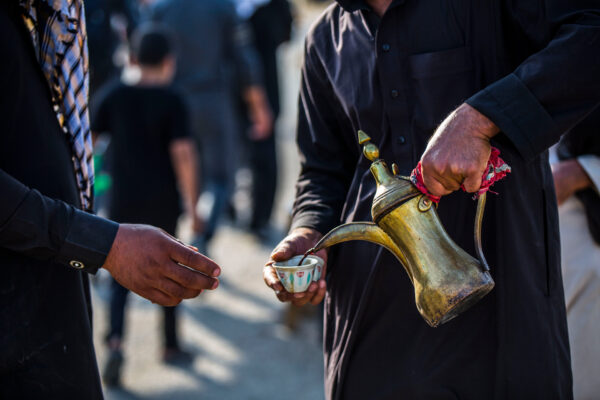With today marking the month of Safar, we decided to take a look at some of the beliefs held about the month and if there is an Islamic basis for them.
With today marking the month of Safar, we decided to take a look at some of the beliefs held about the month and if there is an Islamic basis for them.
Safar is the second month of the Islamic year and has become known in some circles as a month of bad luck or misfortune. In this article, we look at the origins of this opinion and what Islam and its leading schools have to say about it.
Superstitions About Safar
From hadith literature, the main superstition held about Safar was considering the performance of Umrah during Hajj season a sin. In a lengthy hadith from Sahih Bukhari, Ibn Abbas reports:
The people (of the Pre-Islamic Period) used to think that to perform `Umra during the months of Hajj was one of the major sins on earth. And also used to consider the month of Safar as a forbidden (i.e. sacred) month and they used to say, “When the wounds of the camel’s back heal up (after they return from Hajj) and the signs of those wounds vanish and the month of Safar passes away then (at that time) `Umra is permissible for the one who wishes to perform it.” In the morning of the 4th of Dhul- Hijja, the Prophet (ﷺ) and his companions reached Mecca, assuming Ihram for Hajj and he ordered his companions to make their intentions of the Ihram for `Umra only (instead of Hajj) so they considered his order as something great and were puzzled, and said, “O Allah’s Messenger (ﷺ)! What kind (of finishing) of Ihram is allowed?” The Prophet (ﷺ) replied, “Finish the Ihram completely like a non-Muhrim (you are allowed everything).”
Other superstitions about Safar include the following (I could not find a trail back to the original source of the superstition, but these seem to be commonly held beliefs):
- The first 13 days of Safar are evil, and the chances of bad things happening are greater.
- Evil spirits possess young children and brides. Therefore, marriage should not be performed during this month.
- Any new venture should be avoided at ,all costs e.g. starting a new business or buying a house.
Do such superstitions have any place in Islam? Here is the Islamic perspective on such ideas.
Superstitions Are A Type of Shirk
The source of all occurrences in life is Allah (SWT). No other entity, creation or force has any say or influence on events except if they are given permission by Allah (SWT). It is known that angels are in charge of natural occurrences such as the speed and force of wind and rain. They can only do this because Allah (SWT) has given them this authority. They haven’t derived this ability through their own independence.
The problem with superstitions is that it leads one to believe there are other forces that have an independent influence on our life. We have to remember all calamities or good things are from God, and He distributes it according to His perfect wisdom. To avoid marriage (for example) in Safar because we feel doing it brings about misfortune is a type of reliance on other than God. Either we are saying some other unknown force brings a calamity if we get married in Safar or that God punishes us for getting married in Safar. The former is shirk, and the latter defies logic because it would mean God punishing us for implementing a Sunnah.
The vast majority of Shia Muslims avoid marriage in Safar. This is not owing to superstition but rather respect afforded to the family of the Prophet. In the month of Safar, the granddaughter and great-grandson of the Prophet, Lady Zainab and Ali ibn Hussain, were taken captives by Yazid after the Battle of Karbala. As it is a month of sadness for the Prophet’s family, Shia Muslims avoid marriage and other similar happy occasions in Safar.
Prophet Muhammad’s Comment About Safar
The Prophet Muhammad (PBUH) was aware of the superstitions held in his community and
There is no contagion, nor is there any evil omen in birds, nor is there any evil omen in the owl, nor is there any bad omen in the month of Safar.”
The majority of scholars interpret this to mean that these things in and of themselves do not transmit or cause harm through supernatural or hidden means but that Allah (SWT) is in control and any fearful superstition around these is false.
Prophet Muhammad’s Comment About Superstitions in General
A hadith in Adab al-Mufrad summarises the Prophet’s view on superstitious beliefs/bad omens:
Paying attention to the bad omen (tayyara) is association (shirk). It has nothing to do with us. Allah will remove it by reliance on Him.”
There happened to be an eclipse around the same time the Prophet’s son Ibrahim died. People started thinking the eclipse may be a bad omen or some sort of sign. Despite mourning his child, the Prophet had to ascend the pulpit and clarify the misconception. Reported in Bukhari:
The sun and the moon do not eclipse because of the death or life (i.e. birth) of some-one. When you see the eclipse pray and invoke Allah.”
The Quran Comments on Superstitious Beliefs
Throughout the history of the prophets, many would consider them and their message to be an evil omen. They would respond in the following:
The evil omen is within yourselves. Why do you take it as an evil omen when you are reminded of the Truth? You are going too far!”
[36:19]
One interpretation of the response “the evil omen is within yourselves” is the lack of faith these people had in Islam/monotheism.
Prophet Salih (as) was considered a bad omen by the disbelievers of his community. His response was:
God will decide on any omen you may see: you people are being put to the test.”
[27:47]
Here, Prophet Salih is explaining how any apparent omen is from God, i.e. He is the source of any occurrence and not some other force independent of God.
And lastly, the people of Musa (as) slowly crept into superstitious belief and would need to be reminded the source of all is none other than Allah (SWT):
Then, when something good came their way, they said, ‘This is our due!’. When something bad came, they ascribed it to the evil omen of Moses and those with him, but their ‘evil omen’ was really from God, though most of them did not realize it.”
[7:131]
They mistakenly believed Musa was the source of an evil omen. The Quran clarifies that what they think is an evil omen is actually something from God.
Sunni and Shia Views on Superstitions
Sunni and Shia Muslims are unanimous in the polytheistic nature of superstitions. The above evidence is documented from Sunni hadith literature. Below is a selection of Shia hadiths on the same subject.
The Prophet Muhammad (PBUH) said:
Auguring evil (and considering the evil omen to have an influence upon the life of man) is a kind of polytheism (shirk).”
Furthermore, the sixth Shia Imam, Jaffer ibn Muhammad as-Sadiq (d.148AH), said the following:
An evil omen affects only in the measure you consider it to possess. If you take it lightly, its influence would be trivial, but if you regard it seriously, it would affect you immensely and if you totally disregard it, it would have no effect.”
Imam Sadiq is saying the effect a supposed evil omen has on us is to the degree of meaning we assign to it. If we say XYZ is evil, then we will treat it as such (even if it has no actual evil present) and will put ourselves under difficulty and duress for no reason. On the other hand, if we disregard it, nothing will happen. It’s like our imagination. If we imagine something bad, we feel worried even though it’s not actually happening to us. And we can dispel this worried feeling by simply not paying attention to the imagination.





